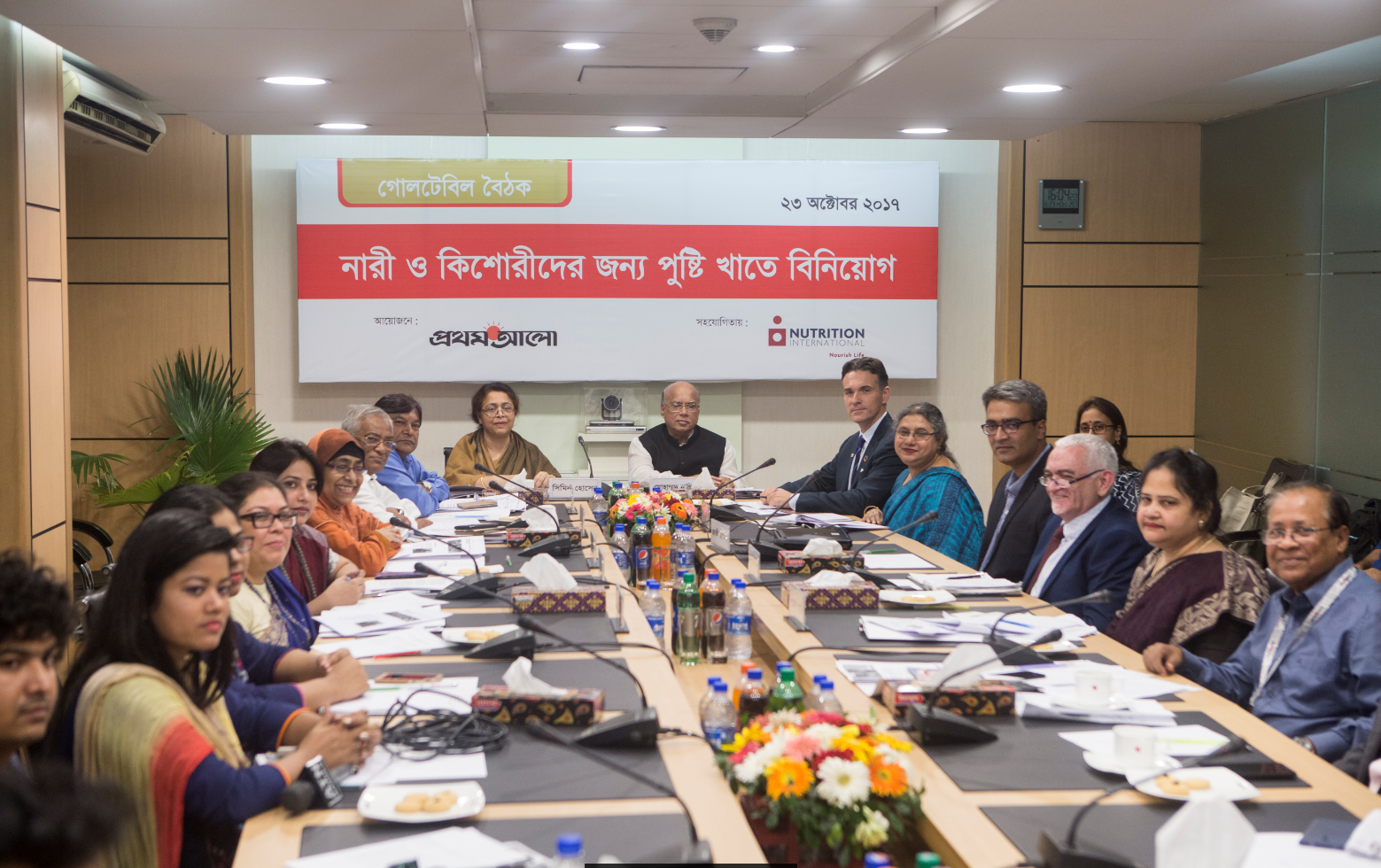Field Stories
Ten inspiring global nutrition stories
December 17, 2024
WP_Term Object
(
[term_id] => 48
[name] => News
[slug] => all-news
[term_group] => 0
[term_taxonomy_id] => 48
[taxonomy] => news-category
[description] => Stay up to date on our announcements, newest projects and partnerships, and news about how we’re making a difference in the lives of people around the world.
[parent] => 0
[count] => 272
[filter] => raw
)
Increase investment in women and girls’ nutrition, say policy leaders
Policy leaders and nutrition experts called for more investment in women and girls'nutrition at a policy round table in Dhaka, Bangladesh.
Posted on December 20, 2017


DHAKA, BANGLADESH – Greater investment is needed in women and girls’ nutrition, declared policy makers, senior government officials, nutrition leaders and researchers at a policy roundtable organized by Nutrition International in partnership with Prothom Alo, Bangladesh’s largest newspaper.
The discussion addressed the challenges associated with access to good nutrition for women and girls living in poverty, as well as key socio-economic conditions that become additional barriers to their overall development and wellbeing.
According to the 2014 Bangladesh Demographic Health Survey, around 49% of girls are pregnant by the time they are 18 years old. This survey also found that around half of all pregnant Bangladeshi women are anaemic, contributing to maternal mortality
Minister of Health and Family Welfare Mohammad Nasim spoke of the inadequacy of funds for health and nutrition in the country.
“The amount of resources allocated to improve the health of our impoverished and deprived population is clearly not enough. We need to invest more, especially if we want to see any improvement in the wellbeing of women and girls.” – Mohammad Nasim, Minister of Health and Family Welfare
Despite the growing challenges in the country, the amount of investment has remained the same over the past several years, stated the Minister, announcing that with increased investment he would set aside funds exclusively for initiatives that tackle undernutrition among women and girls.
Member of Parliament Simeen Hussain Rimi, a women’s rights activist, declared that nutrition was often a neglected issue in the country, and spoke of the major obstacle presented by the prevalence of gender inequality.
“There is a huge difference in the way we treat our girls and boys. The girls are raised to be married off, often too early for their age. And when underage girls give birth to babies, both the mother and the child are at risk…I interact with a large number of teenage girls and have found many of them unable to smile. They are nutritionally compromised and are unable to lead a happy life.” – Simeen Hussain Rimi, Member of Parliament
Efforts are now being made by the Government of Bangladesh to work with religious leaders to counsel young newlyweds to delay pregnancy until the woman is at least 18 years old. They are also being provided with information on health, nutrition and contraception.
Joel Spicer, President and CEO of Nutrition International, addressed the importance of nutrition, particularly for women and girls, in meeting the SDG targets.
“Investing in nutrition is an investment in building human capital. Good nutrition is as much an education investment as it is a health investment and leads to higher productivity which boosts economic development and promotes stability in the world.” – Joel Spicer, President and CEO, Nutrition International